How do you make Google Forms anonymous
- Click on Start a new form
- Create your form by adding the questions and answers
- Click on the Settings tab
- Make sure to uncheck Limit to 1 response, as this will require a Google sign-in.
- Before you make your form publicly available, you can get a sneak peek by using the eye icon
- Test your form with a dummy response made by yourself
Surveys are a great way to gather data points on everything from how your business is performing to how your employees are feeling about recent company changes. But some surveys work better as anonymous surveys, while others really need identifying information. In this post, we’ll walk through the basics of an anonymous survey, reasons you might choose to use one, and a few pros and cons to using one.
If you’re familiar with the Google suite and want to stick with its survey tool, you’ll want to know how to make Google Forms anonymous. We’ll walk through that quick process below, but first we’ll start with the basics.
What is an anonymous survey?
An anonymous survey allows you to collect responses from participants while keeping their identities private. This means you won’t collect any of your participants’ data — like email address, name, IP address, or any other personally identifiable information (PII). With an anonymous survey, there’s no way to track a response back to the participant, so it’s important to first determine whether this is the type of survey you need.
How do you make Google Forms anonymous?
Now that we’ve covered the basics of an anonymous survey, let’s take a closer look at how to make Google Forms anonymous. You can do that in just four easy steps:
- Starting from the main Google Forms site, click on Start a new form. You can choose either a blank form or a template from the gallery.

- Create your form by adding the questions and answers. Set responses as Required as needed.
- Click on the Settings tab. Under Responses, make sure to uncheck Collect email addresses.
- Make sure to uncheck Limit to 1 response, as this will require a Google sign-in.
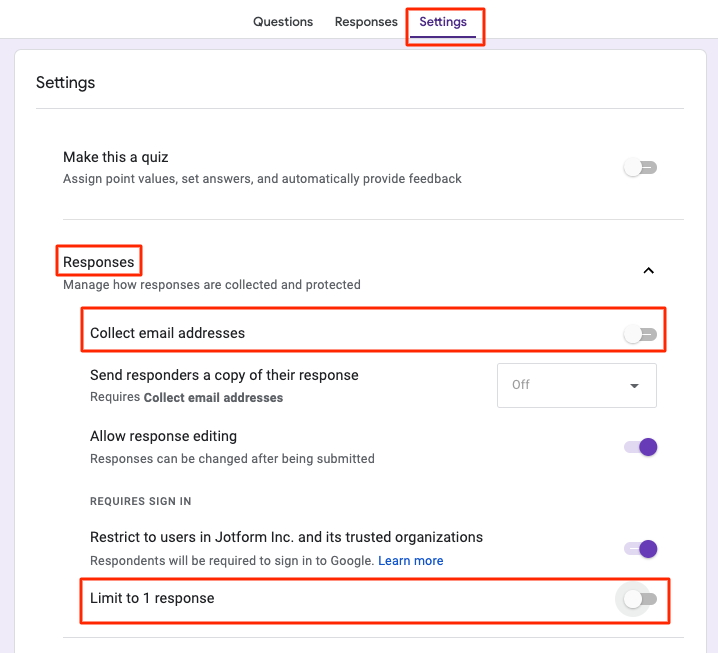
If you’re looking for an alternative to your anonymous Google form, consider checking out Jotform. Jotform offers an easy form-building tool, lots of premade templates, and top-notch security measures to protect responses — whether or not you decide to keep them anonymous.
When should you make a survey anonymous?
So, when does it make sense to keep your survey anonymous? For starters, if you’re collecting confidential information that the participants would most likely not want shared, an anonymous survey is often the way to go. Participants would likely not want to share medical information or anything that could potentially reflect negatively on them.
As the survey maker, you may also have reasons to keep the survey anonymous. One reason could be that you don’t want any PII to cloud your judgment when reviewing the data. Often, an anonymous survey works best when you really just want to use the hard data points and not receive any non-essential information about the participants.
It can also be helpful to keep a survey anonymous if you’re hoping to get feedback on something but don’t want your participants to hold back. Giving feedback can sometimes feel personal, so if you’re trying to gather constructive comments without possibly creating any hard feelings, you can keep the feedback totally anonymous.
What are the pros and cons of making an anonymous survey?
There are benefits and drawbacks to keeping your survey anonymous that you’ll want to consider before you send one out. As mentioned above, there are certain times when keeping things confidential makes more sense, and at other times, you might see more drawbacks to keeping this information private. Let’s dive into the pros and cons.
Pros
- Your responses will be more honest. If you’ve ever been put on the spot to share your opinions in front of an audience, you know what a nerve-wracking experience it can be. Some people feel the same way about an online survey if they know their answers can be tied back to them.
Anonymous responses can put your participants at ease, and you may get more truthful answers. This is especially true when it comes to getting feedback from your employees.
- You may get more responses. Keeping things anonymous might also be an incentive to take your survey in the first place. People often don’t like the extra work of adding their contact information into a form, and they may be worried about the spam they could receive if they provide their email addresses. Anonymous surveys can sometimes be quicker and easier, so you might see a better response rate.
- No unnecessary data collection. If you’re sending out a survey to hundreds of people and have no intention of using their contact information, it’s probably best to not require it at all. It might put your participants more at ease knowing they won’t be spammed with follow-up emails, and you won’t have to worry about keeping this information secure.
Depending on the platform you use, you might opt for different levels of security in your survey. Certain online form tools like Jotform offer encrypted forms and compliance with regulations like GDPR, HIPAA, and CCPA to keep data safe if you choose not to keep this information anonymous.
Cons
- You won’t be able to follow up. If you get an anonymous response that needs clarification, unfortunately, you’re stuck with the ambiguity. If you have an email address on hand, though, you have backup if you ever need to follow up with a participant and get more info. Anonymous survey responses are basically final, so you could end up with very little to work with.
- You may see less effort in the responses. This might sound like it contradicts what you read in the pro section, but look at it this way: If you’re a manager sending out a survey to a large group without requiring participants to identify themselves, a busy employee might breeze through the survey without giving it much thought.
If you do require a name with each survey, employees will feel more pressure to complete this task adequately for their manager. Requiring identification holds your participants responsible for what they provide in the survey, which often produces better results.
- Your data will lack context. When you get your responses back from an anonymous survey, you might see some great feedback — but will it have the same impact as knowing who specifically gave the feedback?
Here’s an example: Say you’re a manager who’s trying to determine if your current schedule of three check-in meetings a week with your employees is going well. If you manage several employees, all with different job requirements and bandwidth, taking the pulse of the group as a whole may not be the way to go.
A non-anonymous survey will add more context to the responses, so you might be able to determine that your entry-level employees feel one way but your senior-level employees feel a different way, for example. This ultimately gives you a better data set to work with and will make your survey more actionable.


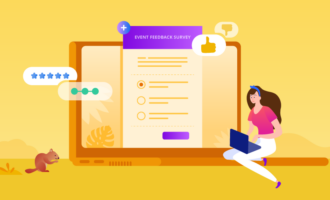
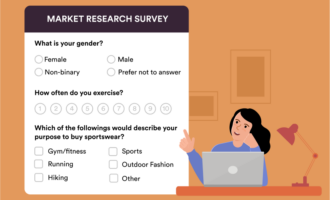




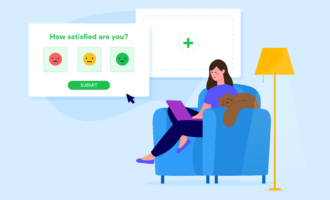





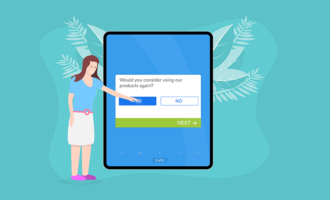







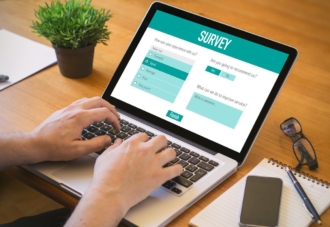

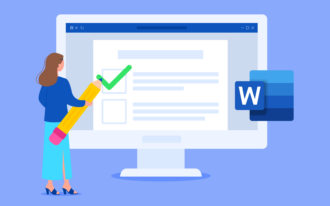






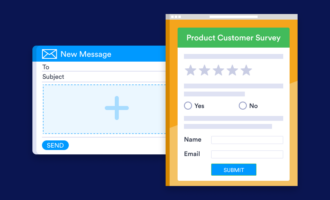








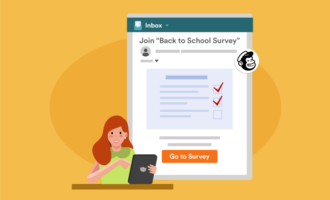

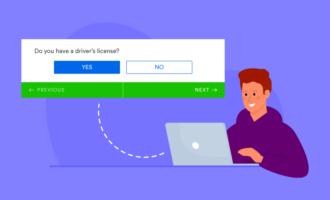

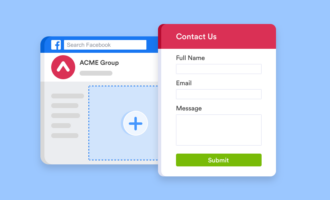

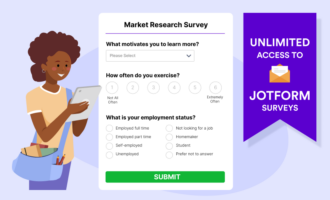







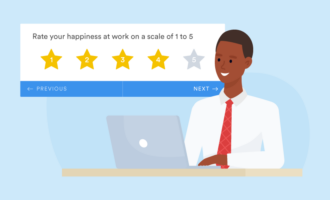


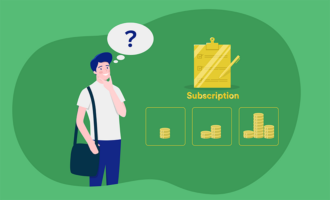





































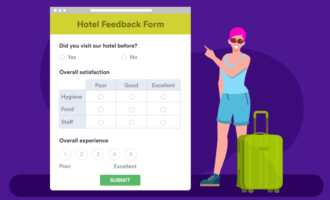


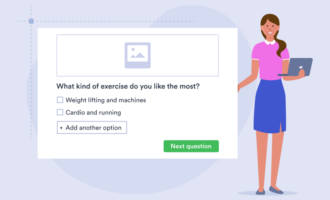



Send Comment:
2 Comments:
More than a year ago
I agree - it doesn't tell you how to :/
More than a year ago
This is awesome, the article "How to Create an Anonymous Survey" has everything except how to create one. What I was looking for:
Step 1. click here and do this
Step 2. click something else
Step 3. you're done.
Right???